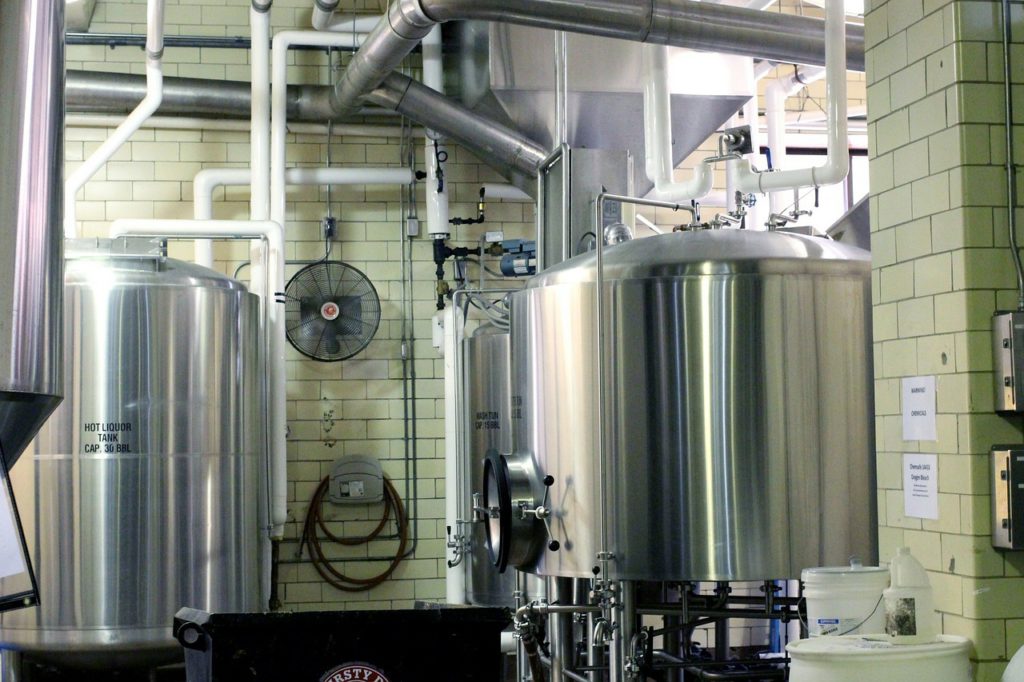Production Engineering, sometimes also referred to as Manufacture Engineering, deals with planning, designing, developing and managing of various processes to produce high quality products. A subset of Mechanical Engineering, this branch of engineering, is interdisciplinary in nature as it blends science and applied technology together.
Production engineers hold a variety of different titles. You may see companies on LinkedIn looking to recruit industrial engineers, production managers, production engineering assistants, and manufacturing engineers, but it essentially means the same thing (in most cases).
Major topics included in a Production Engineering undergraduate degree are mathematics, physics, design, ergonomics, and automation. And the concepts of these subjects are going to be applicable in your daily life as a production engineer; so pursue this path only if you have an interest in the subjects mentioned above.
Job Profile (A Day in the life of a Production Engineer)
As a production engineer, you will be required to make the production process as efficient as possible. You will achieve this by using various principles of engineering, technology, manufacturing and management science. It is a vocation that has significant overlap with manufacturing and industrial engineering.
A quick overview of the tasks you will be performing on a regular basis:
- Handling budget and expenditure.
- Ensuring project deadlines are met.
- Analysis of the data found in charts, graphs and other forms of measuring information.
- Analysis of operational issues and installation of new equipment.
- Providing your team with technical support and training.
You would most likely be given a “unit” or “process” to manage; basically a component of the larger process of manufacturing a product. It would be your duty to make sure that unit is performing well. For example, if you are working in a petroleum refinery, a crude oil distillation unit (CDU) would be under your purview. It is the first step in the process of refining petroleum.
You would also need to make sure that the finished products are satisfying the company, industry, market, and government specifications. Growth prospects are good, and you can become the head of production in just a few years’ time.
Salary of a Production Engineer in India
Starting salary is roughly around 50,000-60,000 rupees per month, but it majorly depends on the college you go to. If you graduate from premier institutes such as IIT Roorkee, starting salary can go up to 70,000-80,000 rupees per month. Expect your monthly salary to hit the six-figure mark in 4-5 years, or even before that.
Degree
Yes, a degree is required in this profession. Go for BTech in Mechanical engineering or Chemical engineering. Post-graduation is optional, since most companies don’t require it.
One thing to love about being a Production Engineer
“On good days, I don’t need to work AT ALL”
One thing to hate about being a Production Engineer
“On bad days, I have to work nonstop. Shifts change every day so sleep schedule is affected.”
Recommended Colleges
IITs, NITs, IIITs, VIT, DTU – basically all the top colleges and universities for engineering in the country.
Resources and Tips
- Read “Fundamentals of Metal Casting” by P C Mukherjee.
- “Welding and Welding Technology 1st Edition” by Richard L Little is also a frequently recommended book in this industry.
- Check this thread out on Reddit. It will answer some of the queries you may have.
Step-by-step guide to becoming a Production Engineer
- Take science (PCM) stream in 11th grade.
- Score at least 60% aggregate in class 12th , as it is a minimum requirement for most insititutes.
- Go to this webpage and navigate to “Production Engineering Exams” to see which entrance exams you need to crack to get a job in this industry.
- Try to do as many internships as you can in college, and put a lot of emphasis on building a network.
- Also try to maintain an above average GPA, as some companies put an emphasis on that.
- Sit for campus placements, and if it doesn’t work out, LinkedIn is your best friend.
Similar Occupations
Web Developer, Data Scientist, Software Engineer, Firmware Engineer
